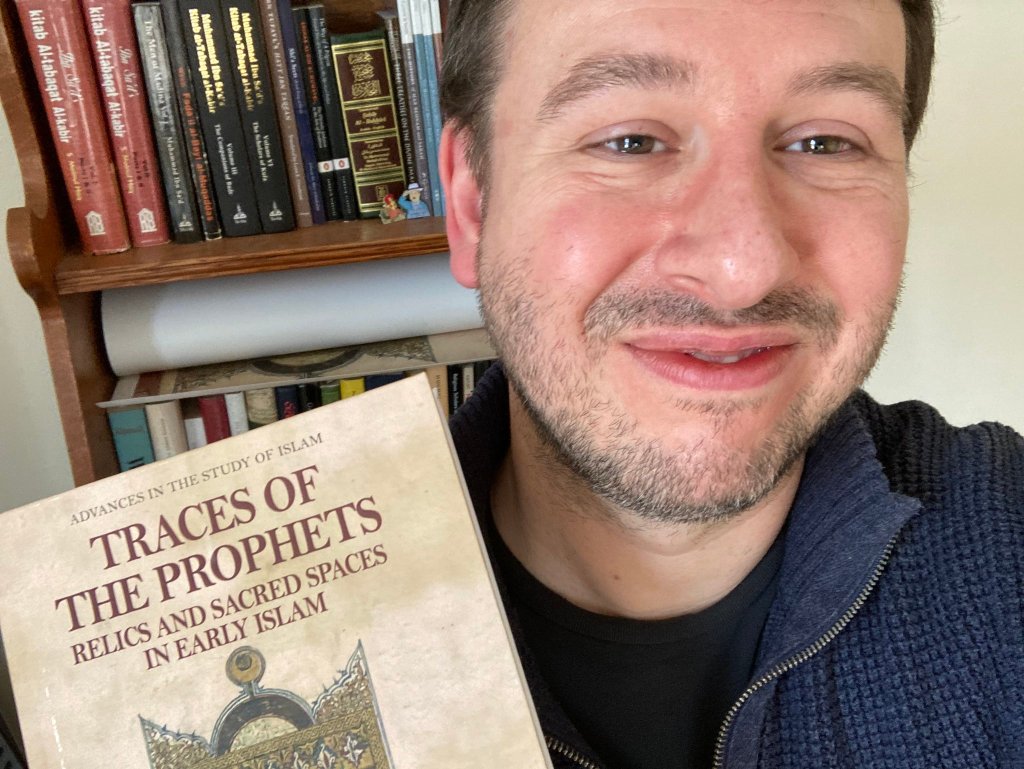After completing Mohsen Goudarzi’s article, Worship (din), Monotheism (islam), and the Qur’an’s Cultic Decalogue, I found further evidence that the Qur’an was indeed revealed as a guide (hudan) and light (nuran) for minds clouded by confusion. For me, this research offers a fresh spark to the often-saturated field of Qur’anic studies, which has, over time, neglected some of its simpler truths.
Mohsen Goudarzi, an assistant professor at Harvard Divinity School (as of July 2021), previously taught at the University of Minnesota. He is a scholar specializing in Qur’anic Studies, with a focus on re-evaluating some of the most fundamental assumptions traditionally held in the field.

In the abstract of his paper, Goudarzi clearly outlines the approach of his study, which aligns with the title. First, he traces the meanings of din and islam from classical sources. Second, he reinterprets three verses (QS Ali Imran (3): 19, 85, and QS Al-Maidah (5): 3). Lastly, as the focal point of his study, he examines the “cultic decalogue” found in third verse of Surah Al-Maidah, which pertains to the prohibition of consuming certain animals.
Goudarzi’s curiosity about the meaning of din and islam, which challenges conventional interpretations, echoes the work of Toshihiko Izutsu from 50 years ago. The word din has long been understood as “religion,” but Goudarzi argues that this interpretation is inadequate. He posits, “In this study, I argue in some detail that the Qur’anic meaning of din as ‘worship’ reflects the ideas of ‘servitude’ and ‘service,’ which are often more pertinent to the signification of din and the verb dana in early Arabic literature than the notion of ‘obedience.'”
Between Service, Worship, and Law
As the verb form of din, dana has various meanings, such as subjugation, obedience, and servitude. Citing Abu Ubaid (d. 224 AH) and Amr bin Kulthum (d. around the 6th century), Goudarzi challenges Ubaid’s interpretation of din as merely “obedience.” He argues that in classical Arabic literature, din conveys more nuanced meanings, such as enslavement, subjugation, or command (as suggested by Amr).
Goudarzi also examines QS Yusuf (12): 76, where Joseph takes his brother Benjamin to punish him “fi din al-malik” (according to the king’s law). Goudarzi finds previous interpretations by traditional scholars insufficient. Upon closer analysis, including its relation to surrounding verses, Goudarzi contends that the phrase is better understood as “the king’s servant/slave.”
Moreover, the development of the term din also encompasses the idea of ritual worship. Goudarzi refers to the 6th-century poet al-Nabighah al-Dubyani, who used din to indicate a ritual of pilgrimage, as well as a Hadith from Ibn Abbas (d. 68 AH), where Arabs before Islam are described as adhering to two dins: Hillah and Hums.
This suggests that certain cultic practices can also be tied to the word din. While modern scholars may debate whether din signifies “worship,” Goudarzi remains convinced that some verses in the Qur’an, though not all, reflect this meaning. His view aligns with scholars like Nicolai Sinai and Matthew Niemi.
Verses like QS Al-Kafirun (109):6, “For you is your din and for me is my din,” seem to reflect a notion of “worship,” where the contrast lies in what each party worships. The idea of exclusive worship is particularly fitting when paired with verbs like akhlasa or mukhlish, as in mukhlisina lahu al-din (“those who devote their worship exclusively to Allah”). In this context, scholars like Régis Blachère and others cited by Goudarzi prefer to interpret din in this manner.
The Notion of Law
Goudarzi further explores the interpretation of din as “law” in his study, though he expresses skepticism about this meaning. He notes that early modern European scholars of the Qur’an often translated din as “law” before “religion” became the more accepted term. For Goudarzi, instead of understanding din as a legal tradition, it is better understood as a form of worship that includes obligatory laws surrounding it.
Islam: The Exclusivity of Din
The Qur’an was revealed to critique the polytheism of those who worshiped multiple gods. In contrast, the Prophet and his followers worshiped the one true God, Allah. The term islam is therefore closely tied to the concept of akhlasa, which signifies exclusive devotion to a single deity. To be a mukhlis or muslim means not just serving, worshiping, and submitting to Allah, but doing so in a total and exclusive manner. Alongside exclusivity, islam*also signifies monotheism (tawhid).
While in pre-Islamic Arabic poetry, aslama often meant to surrender, abandon, or even betray, contemporary scholarship, like that of Nicolai Sinai, redefines the term to signify full devotion.
As Goudarzi succinctly states, “If din is worship and other acts of devotion, then islam is a specific kind of din, namely servitude in which a servant fully belongs to one master (rabb) and thus devotes their worship entirely and exclusively—monotheistically—to that master (cf. Q 39:29).”









